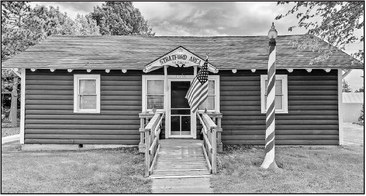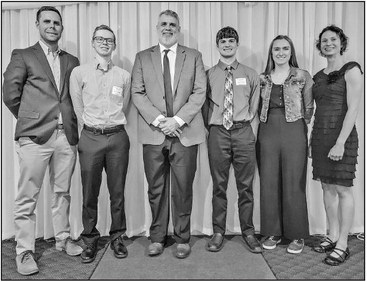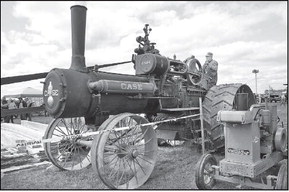Stratford church enters land into conservancy trust
Last month representatives from the Ebenezer United Church of Christ in Stratford permanently protected their 30-acre church property while maintaining private ownership of the land through a conservation easement donated to the North Central Conservancy Trust (NCCT).
Located in southwestern Marathon County, the Church’s property includes diverse forests and wetlands. It hosts more than one quarter mile of shorelands on the Big Eau Pleine River, providing habitat and refuge to a wide variety of plant and animal species, and benefits to the river’s water quality.
Before European settlement, this part of northcentral Wisconsin was called home by Menominee and Ojibwe Native American tribes. The original 40-acre church property was purchased in 1886 by German immigrant, Reverand William H. Steinecker and his congregation for $200. By 1889, the group had constructed the first church on the property, which was replaced by the current building in 2007.
The decision to protect the property with a conservation easement came after the church’s board of directors made the difficult decision to close its doors and sell the land after 140 years in operation. Church board president Susan Vick and treasurer Mike Landwehr said, at its peak, the congregation had around 300 members, but over the past few years their numbers have dropped, and they have struggled to find enough volunteers to keep things going.
After initially receiving interest in the property from developers, the board began looking into options for protecting it before selling, something the congregation fully supported.
“During our first visit to the property Susan and Mike spoke of the spiritual, rejuvenating, and peaceful values of this land,” said NCCT board president Jill Falstad said. “They shared memories of times when members of the congregation went to the property to give thanks, cry for joy or sorrow, pray, contemplate life, find inspiration, or just to listen to the sounds of nature. That is why we do this work. It is an honor to work with landowners to fulfill their vision of protecting these valuable lands. We are truly grateful to the Ebenezer United Church of Christ and their congregation for this incredible gift!”
The protection of this property will not only conserve wildlife and plant habitat but will also contribute to the health of the Lower Big Eau Pleine watershed. The intact landscape will provide good quality water to the Big Eau Pleine River before it drains into Lake DuBay, a flowage of the Wisconsin River. The Big Eau Pleine Reservoir has long had impaired water quality from high rates of surface run-off containing sediment and nutrients that lead to excessive algal blooms.
A conservation easement is a voluntary agreement between a landowner and land trust that defines the uses that can take place on a private property to protect its conservation values.
The terms of a conservation easement are discussed by the landowner and land trust until all parties are satisfied with the document. Then, the conservation easement is filed with the local register of deeds to tie the conservation easement to the title of the property. Conservation easements are permanent and can provide significant peace of mind for property owners who know that their land will continue to be protected in the future.
After signing a conservation easement, NCCT is responsible for ensuring that the terms of the easement are permanently honored by current and future property owners. Staff and volunteers work with landowners to monitor each protected property at least once per year.
Since NCCT was established in 1994, the organization has completed 62 conservation easements, helping landowners protect more than 5,200 acres of land, including ten miles of shoreline on Central Wisconsin waterbodies. NCCT also owns four properties that together cover about 176 acres.
North Central Conservancy Trust is a nonprofit 501(c)(3) organization that operates in an eight-county service area that includes Lincoln, Taylor, Clark, Marathon, Wood, Portage, Adams, and Waushara counties.




